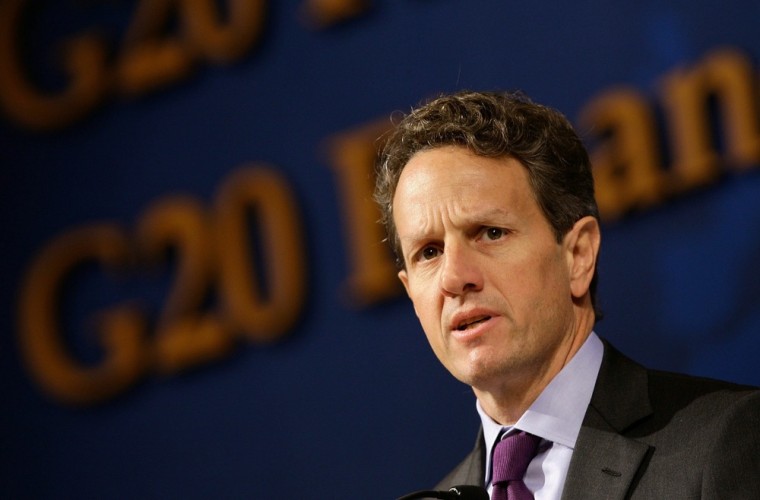U.S. Treasury Secretary Timothy Geithner held hastily arranged talks Sunday with a top Chinese finance official amid currency tensions after a weekend pledge by finance leaders to rebalance the global economy.
Geithner and Vice Premier Wang Qishan exchanged views on U.S.-Chinese economic relations in the eastern city of Qingdao but no details were immediately released. Both governments said the two also discussed preparations for a Nov. 11-12 meeting of leaders of the Group of 20 major economies in Seoul.
Beijing faces mounting pressure from U.S. lawmakers to ease controls they say hold down its yuan currency, boosting China's trade surplus and costing American jobs. Legislation passed Sept. 30 by the House would allow Washington to sanction governments that manipulate their currency for trade advantage. The Senate is scheduled to take up the measure after the November elections.
Plans for the Geithner-Wang meeting were announced Saturday as G-20 finance officials and central bankers wrapped up their meeting in Gyeongju, South Korea. It suggested the two sides decided higher-level contact was required after Geithner was in Gyeongju with China's finance minister, Xie Xuren, and other officials.
The G-20 officials pledged Saturday to avoid currency manipulation.
"Countries with significantly undervalued exchange rates committed to move towards more market-determined exchange-rate systems that reflect economic fundamentals, as China is now doing," Geithner told reporters Saturday.
Beijing promised a more flexible exchange rate in June but the yuan rose by only about 2 percent against the dollar in the following three months. Its appreciation has speeded up since House passage of the currency bill, suggesting Beijing is trying to defuse pressure on the Senate to approve it.
On Oct. 15, Geithner's department delayed issuing a report required by Congress about which countries are manipulating their currencies. Instead, officials praised the recent appreciation of the yuan but said it needed to continue. They said the currency report would not be issued until after the G-20 talks.
The G-20 finance ministers and central bankers promised to avoid debilitating currency devaluations and reduce trade and financial imbalances and to give China and other major developing countries a bigger role in managing the global economy.
"If we're going to be able to continue to expand opportunities for trade and preserve an open trading system, then we need to work to achieve more balance in the pattern of global growth," Geithner said Saturday.
